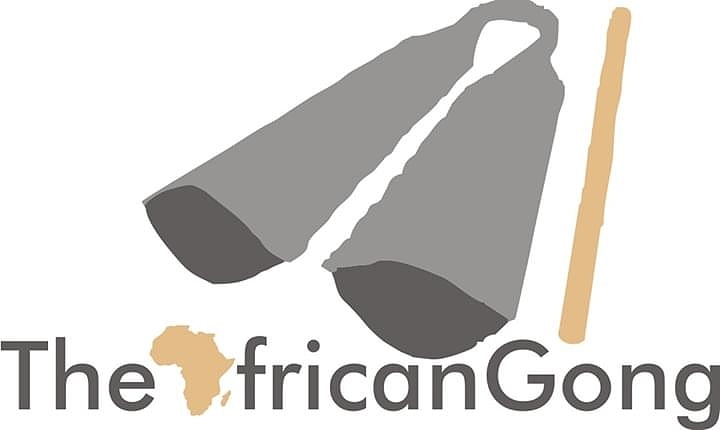
A Federal High Court sitting in Abuja, the nation’s capital, has been asked to stop the All Progressives Congress, APC, from replacing Alhaji Kabiru Masari, as the running mate to Asiwaju Bola Tinubu, the presidential candidate of the party in the 2023 presidential election.
Shortly after Tinubu emerged as the presidential candidate of the APC, the name of Masari was submitted to the Independent National Electoral Coomission, INEC, as an interim Vice Presidential candidate.
However, two chieftains of the party, who were delegate’s in the just concluded APC National Convention, Zakari Maigari and Zubainatu Mohammed, approached the court to stop INEC from accepting change of vice presidential candidate from APC.
The plaintiffs joined, APC, Independent National Electoral Commission (INEC), Asiwaju Bola Tinubu and Kabiru Masari as defendants.
In the suit marked FHC/ABJ CS/1059/2022 and dated July 4, 2022, the plaintiffs want the court to determine whether having regard to the combined effect of sections 142(1) and sections 29(1), 31 and 33 of the Electoral Act, it is legally permissible for the 4th Defendant to withdraw as the vice-presidential candidate of the 1st Defendant and the running mate of the 3rd Defendant so as to be substituted or replaced with another person by the 1st Defendant as its candidate for the office of Vice President for purpose of the February 25, 2023 Presidential Election.
They also want the court to determine whether in view of the joint ticket provision in section 142(1) of the Constitution of the Federal Republic of Nigeria, 1999, the withdrawal of the 4h Defendant as the candidate for the office of Vice President does not entail the automatic withdrawal of the 3rd Defendant as the candidate for the
office of President for purpose of the 2003 General Elections.
The plaintiffs in the suit sought the following reliefs:
Whether having regard to the combined effect of sections 142(1) and sections 29(1), 31 and 33 of the Electoral Act, it is
legally permissible for the 4 Defendant to withdraw as the vice-presidential candidate of the 1st Defendant and the running mate of the 3 Defendant so as to be substituted or replaced with another person by the 1st Defendant as its candidate for the office of Vice President for purpose of the February 25, 2023 Presidential Election.Whether in view of the joint ticket provision in section 142(1) of the Constitution of the Federal Republic of Nigeria, 1999, the withdrawal of the 4h Defendant as the candidate for the office of Vice President does not entail the automatic withdrawal of the 3″ Defendant as the candidate for the office of President for purpose of the 2023 General Elections.
Whether having regard to the provisions of sections 29(1), 31 and 33 of the Electoral Act 2022, the 1″ Defendant is entitled to submit the name of any other person to replace the name of the 4 Defendant as the candidate for the office of Vice President of the Federal Republic of Nigeria, without holding a fresh primary election to produce a fresh presidential
candidate.
Whether the 3 Defendant having nominated the 4 Defendant in compliance with section 142(1) of the Constitution of the Federal Republic of Nigeria, 1999, the 3 Defendant can subsequently validly undertake or effect nomination of any other person to replace the 3″ Defendant whether upon withdrawal of the 4 Defendant or under any other circumstances, in view of the provisions of section 33 of the Electoral Act, 2022.

The plaintiffs pointed out that Section 187 (1) of the Constitution creates the Governorship candidate and Deputy-Governorship candidate joint ticket, just as section 142(1) establishes the joint-ticket for the Presidential candidate and Vice-Presidential candidate.
“Accordingly, it is submitted that the same principles apply in both situations. In the case of the Governorship candidate and Deputy Governorship candidate joint ticket, it was held in PDP v. DEGI EREMIENYO (2020) LPELR-49734(SC), pp. 8-16, it was held: The sum total is that the joint ticket of the 1st and 2nd respondents sponsored by the 3 respondent was vitiated by the disqualification of the 1st respondent. Both candidates disqualified are deemed not to be candidates at the governorship election conducted in Bayelsa State, “
Similarly, it was held In TAFIDA v. BAFARAWA & ORS (1999) LPELR-6510 (CA), pp. 19-23, as follows: “On the non-joinder of one Alhaji Modi Yabo who was said to have nominated the appellant as his running mate it is true that the petitioner/appellant and Alhaji Modi Yabo must be seen as birds of same feathers that must ascend (fly) together and descend together. Each is a necessary compliment to the other. One cannot fall alone leaving the other standing. Nay, they must stand or fall together”.
Also, in BALEWA v. MUAZU [1999] 5 NWLR (PL 604) 636, a deputy governor elect was disqualified after election and the governor elect was disqualified for not having a running mate, as the two positions go hand in hand.
Equally, in WADA v. BELLO (2016) LPELR-47015(SC), pp. 44-50, it was held: ‘It has been held that there must be a synergy between the party and its candidate in the choice of the candidates’ running mate. Assuming, without conceding, that the 1st respondent did not nominate a running mate, the effect is on his nomination by his party and not on his qualification or disqualification to contest the election for which he was nominated. By his failure to nominate a running-mate, he “shall not be deemed to have been validly nominated for such office…”
Again, in APC v. ISHAKU (2019) LPELR-49991 (CA), pp. 34-37, it was noted that the deputy governorship candidate and the appellant as the sponsoring party sunk with the candidate when he was disqualified.
It is believed that if this suit truly represents the law, then not only the APC will be affected. Labour Party that has Dr Doyin Okupe as placeholder and other political parties with similar arrangements will be caught.
END

